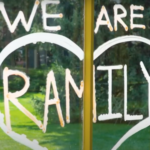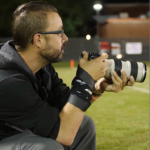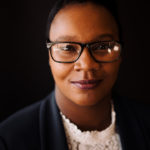By Angela Hayes, Ph.D.
Wage discrimination has been illegal since the Equal Pay Act passed in 1963, but it still continues. It’s estimated that, if we keep going at the rate we were going between the 1960’s and 2015, the wage gap will close in 2059. However, our progress in closing the gap began to slow down in 2001. So, if we keep going at the current rate of change that we’ve seen between 2001 and today, the gender pay gap is expected to close in 2152 (about 5 generations). Depending on your age, we might think of that as your great-granddaughter’s generation. The Huffington Post has joked that we will probably put a woman on Mars long, long before the wage gap closes.
 When I’m working with women one-on-one, they often tell me that the starting salary isn’t that big of deal to them. They are just happy to be offered the job and they know that, once they get in there, they’ll be able to show what they can do and will undoubtedly get a raise. That could happen, but it usually doesn’t. Most organizations have a very set policy about raises and it generally goes on a yearly percentage system. So, if you’re making 77% or 82% or even 88% of what the man is making to start, and you each get 5% raises each year (that’s assuming he doesn’t get promoted over you), the difference very quickly adds up. It adds up not just in salary, or salary increases, but also bonuses, which are usually based on a percentage of base pay, the percentage match that’s going into your retirement and your social security benefits. Base pay matters a lot. On average, depending on occupation, a woman will lose anywhere from $500,000 to one million dollars to the gender pay gap over the course of her working life. Women who have an M.B.A., law degree, or medical degree will lose closer to two million.
When I’m working with women one-on-one, they often tell me that the starting salary isn’t that big of deal to them. They are just happy to be offered the job and they know that, once they get in there, they’ll be able to show what they can do and will undoubtedly get a raise. That could happen, but it usually doesn’t. Most organizations have a very set policy about raises and it generally goes on a yearly percentage system. So, if you’re making 77% or 82% or even 88% of what the man is making to start, and you each get 5% raises each year (that’s assuming he doesn’t get promoted over you), the difference very quickly adds up. It adds up not just in salary, or salary increases, but also bonuses, which are usually based on a percentage of base pay, the percentage match that’s going into your retirement and your social security benefits. Base pay matters a lot. On average, depending on occupation, a woman will lose anywhere from $500,000 to one million dollars to the gender pay gap over the course of her working life. Women who have an M.B.A., law degree, or medical degree will lose closer to two million.
So what do we do about this? First, it is vitally important for you to do your research to find out what you are worth in the marketplace before you interview for a job or consider negotiating your salary. For example, at http://www.salary.com you can put in your industry, job title, geographic location, education, experience and a variety of other attributes that will then produce a bell-shaped curve to tell you want others are making in the low, middle and high end. It also suggests, based on the information you have provided, where you should fall within that range. Once you have this information, keep in mind that the person you are negotiating with has likely been trained in the art of negotiation, so you need to be prepared as well. Click here for a handy salary negotiation guide.
Last, we need to talk about your approach to negotiation. Women need to approach negotiation differently than men do. Men can stress their competence, skills, and so on as a standalone in the negotiation process. Women need to use a more interest-based, collective approach. Women do best if they frame things in terms of how their education, experience, skills, and attributes will benefit the organization. Research shows that if you lose sight of that in the negotiation, you will pay what researchers call a social cost. We’ve all been socialized to think that women are supposed to think of others first, and those biases can definitely come into play when you are negotiating on your own behalf. Please feel free to contact me to get ready for your next salary negotiation. It’s easiest to reach me through e-mail: Angela.Hayes@colostate.edu.
Want to learn more? Join our webinar!
April 2nd, 2019 is Equal Pay Day – the day that represents how long, on average, a woman has to work into the year to equal what a man made by December 31st of the previous year. Learn about the wage gap and how it affects you in this workshop. Determine your worth in the marketplace, and explore tips and techniques to empower you to successfully negotiate equal pay. Click here to register.
Supported by Canvas Credit Union.

ANGELA HAYES serves as the Associate Director of Alumni and Online Career Engagement. Prior to coming to CSU, she worked as the Assistant Director of Alumni and Graduate Student Career Services at Kansas State University. She has a B.S. in psychology, an M.S. in industrial/organizational psychology and a Ph.D. in professional coaching and human development. She’s a nationally Board Certified Coach and a nationally Certified Health and Wellness Coach.
She has a passion for helping others to see their lives as full of possibilities and un-tapped potential. She views changes/transitions (both planned and unplanned) as opportunities for individuals to discover and plan out what they really want from their careers and lives.


































































